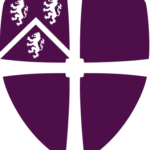
Date: 12th – 14th April 2018
This interdisciplinary conference is envisioned as a forum for reflection on the current state of research on trauma within the medical humanities and on potentially fruitful directions for future exploration. It is organised by the Music Department and Centre for Medical Humanities at Durham University, with the financial support of the Wellcome Trust. Confirmed keynote speakers are Professor Mikhail Epstein (Emory University), Professor Marina Frolova-Walker (University of Cambridge) and Dr Ursula Wirtz (International School of Analytical Psychology, Zurich).
The last three decades have seen a steady growth of interest in the subject of trauma not only within psychiatry and psychotherapy, but also across the humanities. The study of trauma has become increasingly interdisciplinary, ranging from historians’ analyses of the long-term social effects of mass trauma on civilian populations to studies of the links between trauma and artistic creativity, and mental health practitioners’ investigations of music, literature, dance, and other arts as adjuncts to the treatment of trauma.
Proposals are invited for panels and individual paper proposals relating to the following themes:
- The contribution of the humanities to deepening our understanding of trauma
- Therapeutic applications of humanities research on trauma
- The arts and the treatment of trauma
- Narratives of trauma
- Artistic representations of the traumatised state and post-traumatic subjectivity
- Artists’ engagement with trauma occasioned by war, genocide, social and political upheaval, catastrophic events
- Traumatic memory and confronting the traumatic past
- The humanities and the study of collective, cultural, and transgenerational trauma
- Methodological approaches to the study of trauma within the humanities
- Trauma and contemporary culture
- Trauma, spirituality, and the quest for meaning
The organisers are especially keen to elicit proposals pertaining to new and emergent areas of interest. The conference will feature a special session on the study of trauma within musicology. Other areas of interest include representations of traumatic experience in literature and the visual arts of earlier historical periods and in the artistic traditions of non-Western cultures.
Proposals for individual papers of 20 minutes’ duration should be submitted in the form of a 250-word abstract accompanied by a 100-word professional résumé, contact information, and details of professional affiliation. Proposals for panel sessions should include a 300-word statement explaining the panel’s rationale as well as abstracts of each paper. The organisers welcome proposals from postgraduate researchers and independent researchers.
The working language of the conference will be English, but requests to present in another language will be considered at the discretion of the conference committee. If the paper is accepted, the speaker will be required to provide a high-quality English translation.
A limited number of bursaries will be available to assist graduate students and presenters without access to institutional support. If you wish to be considered for a bursary, you should indicate this in your covering letter when submitting your abstract. Please be aware that we are unlikely to be in a position to cover participants’ costs in full.
Conference delegates will have the option of staying in reasonably priced accommodation in the university’s colleges.
Proposals should be submitted by e-mail to Dr Patrick Zuk by Monday 13th November 2017. Notifications of acceptance will be sent by Monday 4 December 2017.

